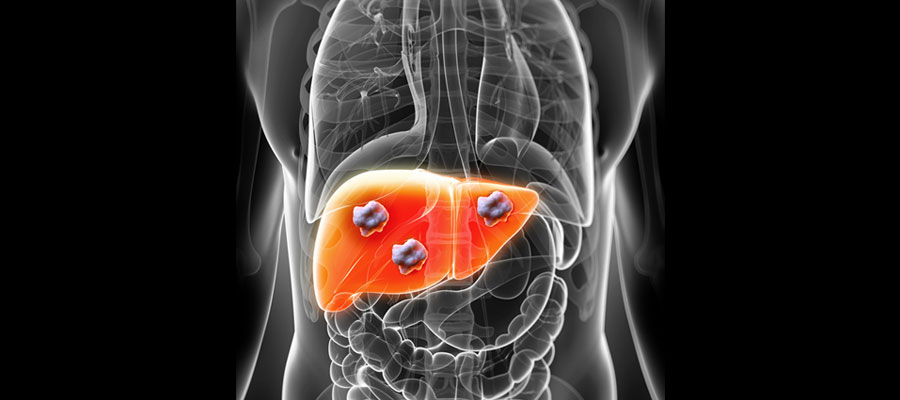Does radiofrequency ablation of unresectable colorectal liver metastases prolong long-term survival?
23 Mar 2017
Ten-year follow-up results of the randomized phase II EORTC 40004 CLOCC study, published in JNCI , demonstrated that the ablation by radiofrequency of unresectable liver metastases in colorectal cancer patients can prolong overall survival in these patients.
The study included 119 patients in 22 centers in Europe, randomized to receive either chemotherapy alone, or radiofrequency ablation with or without resection in addition to chemotherapy. Patients were eligible only when all liver lesions could be fully treated by either radiofrequency ablation alone or combined treatment that consisted of resection of resectable lesions and radiofrequency ablation of the remaining unresectable lesions. After 10 years of follow-up, results showed that patients with combined treatment had better overall survival than those with only chemotherapy:
Three, five and eight-year overall survival rates were, 56.9%, 43.1%, 35.9% respectively in the combined modality arm, and 55.2%, 30.3%, 8.9% respectively in the systemic treatment arm.
In addition, median progression-free survival was also improved in the combined arm at 16.8 months, compared to 9.9 months in the systemic arm. “Although common practice has been to perform tumour ablation through radiofrequency in these types of metastases, there was until now no science-based evidence to demonstrate the long-term benefit of this approach,” said Dr Théo Ruers, lead investigator for the study. “This study provides confirmation that patients not eligible for surgery can greatly benefit from a more vigorous treatment combining systemic and local intervention.”
The results of the study strongly suggest combining aggressive local tumour ablation with chemotherapy as standard of care for unresectable colorectal liver metastases can considerably change the outcome for these patients, improving overall survival.
Related News
Meet the new EORTC Board
9 Jul 2024
We are pleased to announce the release of the EORTC 2023 Annual Report
17 Jun 2024
Dr Denis Lacombe, EORTC CEO, appointed stakeholder co-chair of ACT EU advisory group
24 May 2024
Clinical Trials Day 2024: a Q&A on pragmatic clinical trials
20 May 2024
EORTC/EMA workshop suggests an international way forward for treatment optimisation studies
8 May 2024
EORTC’s Participation at the ESTRO Congress 2024
29 Apr 2024
EORTC: Advancing research and treatment for rare cancers
29 Feb 2024
EORTC Fellowship Programme: celebrating more than 20 years of impactful collaboration
22 Feb 2024
Appointment of Malte Peters as EORTC Strategic Alliance Officer
9 Feb 2024
Unique series of workshops in partnership with the European Medicines Agency (EMA)
7 Feb 2024


